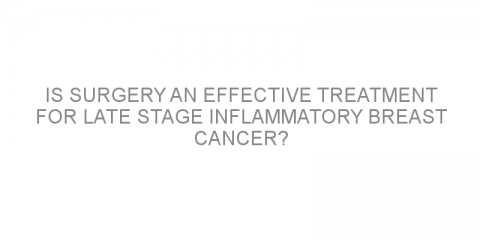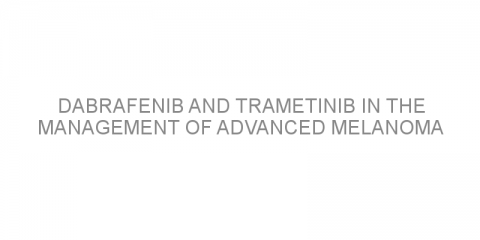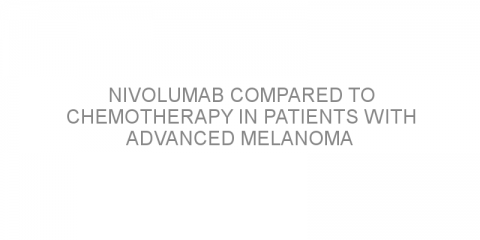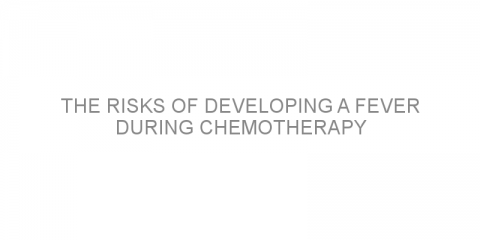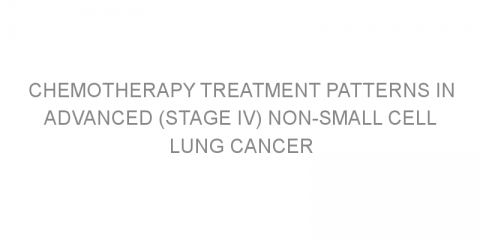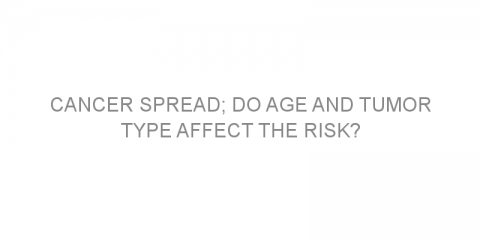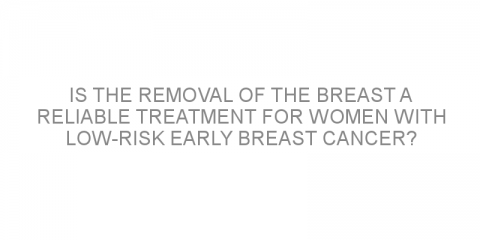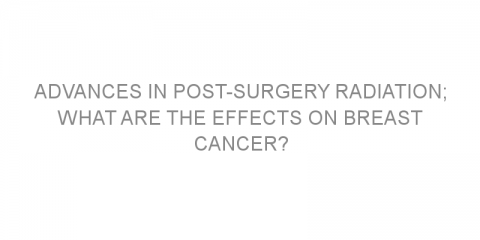In a nutshell The authors compared the overall survival benefits of two chemotherapy-based combination treatments in advanced non-small cell lung cancer (NSCLC). The combination treatments were S1 plus cisplatin (Platinol) and docetaxel (Taxotere) plus cisplatin. Some background NSCLC is the most common type of lung cancer. In the...
Read MoreCurrent disease status-First occurrence of the cancer Posts on Medivizor
Can hormone treatment decrease the risk of prostate cancer recurrence?
In a nutshell The authors aimed to determine whether hormone therapy had an effect on biochemical failure and cancer spread in prostate cancer patients undergoing radiation therapy. Some background Intermediate-risk prostate cancer is cancer that requires active treatment due to growth through and/or out of the prostate. It can be treated...
Read MoreIs surgery an effective treatment for late stage inflammatory breast cancer?
In a nutshell The authors aimed to determine the effectiveness of surgery for the treatment of breast cancer; specifically those within the later stages of inflammatory breast cancer. Some background Inflammatory breast cancer is a rare form of breast cancer, accounting for only 2% of all breast cancers. It is termed 'inflammatory'...
Read MoreDabrafenib and trametinib in the management of advanced melanoma
In a nutshell The aim of this study was to assess the benefits of dabrafenib (Tafinlar) and trametinib (Mekinist) as single as well as as combination therapy in advanced melanoma patients with a specific genetic status. Some background In the advanced stage of melanoma (stage III/IV), cancer spreads from the skin to other parts of...
Read MoreNivolumab compared to chemotherapy in patients with advanced melanoma
In a nutshell The objective of this study was to evaluate the safety and effectiveness of nivolumab (Opdivo) as secondary treatment in advanced melanoma. Some background In the advanced stage of melanoma (stage III/IV), cancer spreads from the skin to other parts of the body. BRAF inhibitors and immunotherapy are the standard treatments for...
Read MoreThe risks of developing a fever during chemotherapy
In a nutshell The authors aimed to determine the risk factors for patients developing a fever during chemotherapy for breast cancer. Some background Febrile neutropenia is the term that describes the development of a fever in a patient who has neutropenia; low levels of granulocytes (a type of white blood cell). This can often be caused by...
Read MoreChemotherapy treatment patterns in advanced (stage IV) non-small cell lung cancer
In a nutshell The authors aimed to evaluate the pattern of chemotherapy treatments and associated survival in advanced (stage IV) non-small cell lung cancer (NSCLC) patients. Some background In advanced NSCLC (stage IV), cancer spreads from lungs to different parts of the body. This is called metastasis. In this stage, chemotherapy...
Read MoreIpilumumab after surgery in high-risk stage III melanoma
In a nutshell The authors aimed to assess the effect of ipilimumab (Yervoy) as an additional therapy after surgery in advanced (stage III) melanoma patients who were at a high risk of relapse. Some background In the advanced stage of melanoma (stage III), cancer spreads from the skin to nearby lymph nodes (tiny, bean-shaped organs that help fight...
Read MoreCancer spread; do age and tumor type affect the risk?
In a nutshell The authors aimed to determine if there was a link between patient age, tumor type and the spread of cancer. Some background Breast cancer metastasis is the spread of the cancer to other parts of the body; following original cancer of the breast. Age at original diagnosis and the area affected by the tumor are just two of the...
Read MorePDE5 inhibitors can increase the risk of prostate cancer recurrence
In a nutshell The authors aimed to determine the effect of phosphodiesterase type 5 inhibitors on biochemical recurrence following prostate surgery. Some background Prostate surgery is a form of treatment that involves surgically removing the prostate gland which can cause erectile dysfunction in some patients. Phosphodiesterase type 5 inhibitors...
Read MoreIs the removal of the breast a reliable treatment for women with low-risk early breast cancer?
In a nutshell The authors aimed to study the best course of surgical treatment for women with low-risk early breast cancer. Some background Breast-conserving therapy (the removal of the tumor and some surrounding breast tissue) is often recommended for women with early breast cancer. It is generally followed by radiation therapy (using radiation...
Read MoreAdvances in post-surgery radiation; what are the effects on breast cancer?
In a nutshell The authors aimed to study the effects of a type of post-surgical radiation; radiation to only the affected area of the breast. Some background Radiation is a type of cancer treatment that is recommended following a lumpectomy (removal of the tumor and some surrounding tissue; breast remains intact). 'Brachytherapy' is...
Read More

